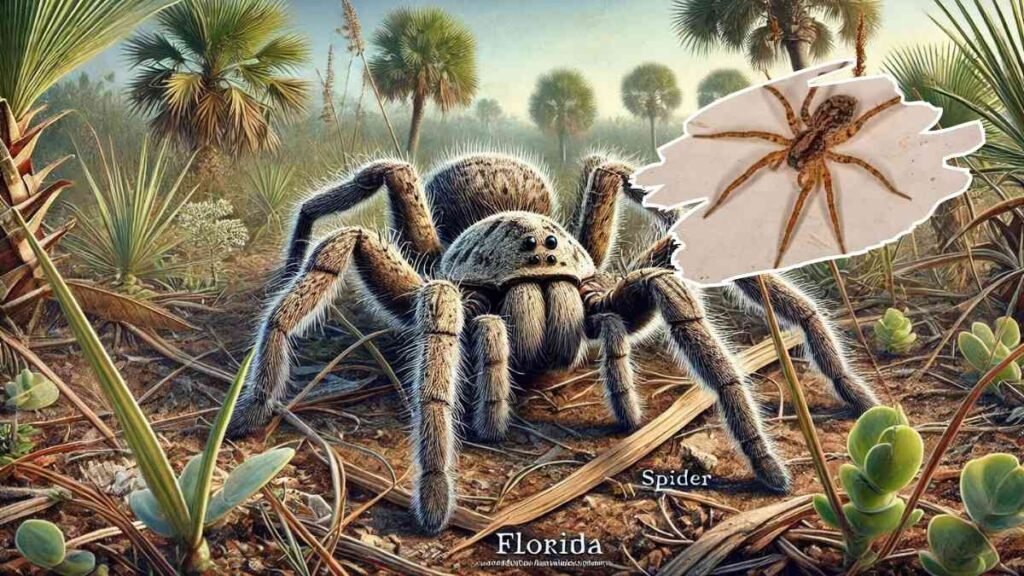Wolf spiders in Florida are common, ground-dwelling arachnids known for their speed and hunting prowess. Unlike other spiders, Wolf Spider Florida doesn’t build webs but actively hunts prey, making them efficient pest controllers. These spiders are typically non-aggressive and pose little threat to humans, though their bite can cause mild discomfort. Understanding the behavior and habitat of Wolf Spider Florida is key to managing their presence in homes and gardens.
Introduction
Florida is home to a diverse range of wildlife, including various species of spiders. Among the most common and misunderstood is the Wolf Spider Florida. These agile hunters can be found throughout the state, often startling homeowners with their size and speed. Despite their intimidating appearance, Wolf Spider Florida plays a crucial role in controlling insect populations. This article delves into the biology, behavior, habitat, and management of Wolf Spider Florida, offering insights for those who encounter these fascinating creatures.
What Are Wolf Spiders?
Wolf spiders belong to the Lycosidae family, named after the Greek word “lycos,” meaning wolf. This name reflects their hunting style, as they do not spin webs to catch prey but instead rely on their speed and agility to chase down and capture insects. Wolf spiders are robust and agile, with excellent eyesight, which is unusual among most spider species. They are typically brown, gray, or black, with body markings that help them blend into their surroundings.
Appearance and Identification
Wolf spiders can range in size from half an inch to over two inches, with females generally being larger than males. They have eight eyes arranged in three rows, which gives them exceptional night vision. Their bodies are covered in hair, and they have long, strong legs that enable them to move quickly across various terrains. The presence of two large, prominent eyes at the front of their face is a distinctive feature that helps in identifying them.
Behavior and Hunting Techniques
Unlike web-building spiders, wolf spiders are solitary hunters. They are primarily nocturnal and rely on their keen vision to spot and chase down prey. During the day, they often hide under rocks, logs, or leaf litter. Wolf spiders are opportunistic feeders, preying on a variety of insects, including crickets, beetles, and other spiders. Their hunting technique involves stalking their prey before pouncing on it with lightning speed.
Habitat and Distribution in Florida
Wolf spiders are highly adaptable and can thrive in a variety of habitats. In Florida, they are commonly found in forests, grasslands, gardens, and even urban areas. They prefer environments where they can easily hide during the day and hunt at night. Their adaptability has allowed them to spread across the state, from the Panhandle to the Everglades. Wolf spiders are also known to enter homes, particularly during colder months or when searching for prey.
Are Wolf Spiders Dangerous?
One of the most common concerns about wolf spiders is whether they pose a threat to humans. While their large size and fast movements can be alarming, wolf spiders are generally not dangerous. They are not aggressive and will typically try to escape when confronted. However, if cornered or provoked, they can bite. A wolf spider bite is usually no more harmful than a bee sting, causing mild pain, redness, and swelling. In rare cases, some individuals may experience allergic reactions.
Managing Wolf Spiders in Your Home
If you find wolf spiders in your home, there are several steps you can take to manage their presence. The first step is to seal any cracks or openings around windows, doors, and foundations to prevent them from entering. Keeping your home clean and free of clutter can also reduce the likelihood of attracting spiders. If you do encounter a wolf spider indoors, it is often best to capture and release it outside, as they are beneficial predators that help control insect populations.
Natural Predators and Ecological Role
Wolf spiders play a significant role in the ecosystem by keeping insect populations in check. They are preyed upon by birds, reptiles, and other larger spiders, contributing to the food chain. Their presence in gardens and natural areas is generally positive, as they help reduce the number of harmful insects. Understanding and appreciating their ecological role can help reduce the fear and negative perceptions often associated with these spiders.
Myths and Misconceptions
There are many myths and misconceptions surrounding wolf spiders. One common myth is that they are highly venomous and pose a significant threat to humans. In reality, their venom is not particularly potent and is primarily used to subdue prey. Another misconception is that wolf spiders are aggressive. While they are active hunters, they are not inclined to attack humans and will usually flee when disturbed.
Conclusion
Wolf spider Florida are a fascinating and important part of the state’s natural environment. Although they may appear intimidating, they are generally harmless to humans and provide valuable pest control services. By understanding their behavior and habitat, residents can coexist with these spiders without unnecessary fear. If you encounter a wolf spider, remember that they are more likely to help than harm you.
FAQs
Q: What should I do if I find a wolf spider in my home?
A: Capture and release it outside, as they are beneficial in controlling insects.
Q: How can I prevent wolf spiders from entering my home?
A: Seal cracks and openings, and keep your home clean and free of clutter.
Q: Are wolf spiders aggressive?
A: No, wolf spiders are not aggressive and will typically flee when disturbed.
For More Visit, MirrorMagazine.co.uk


